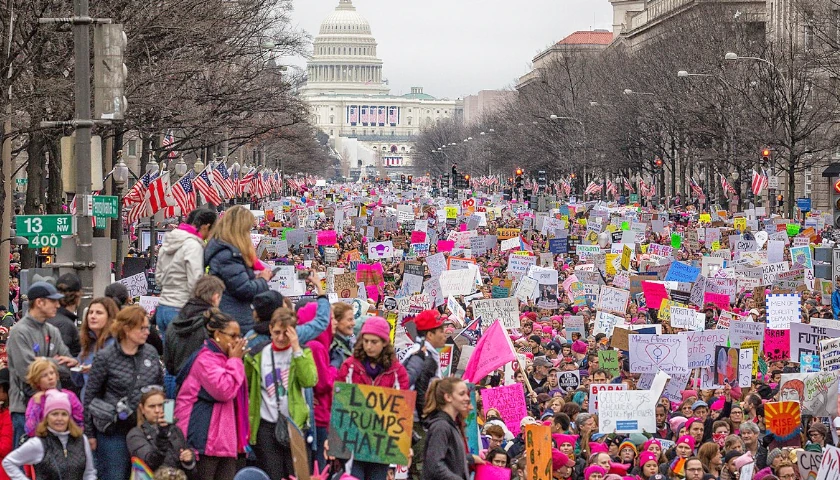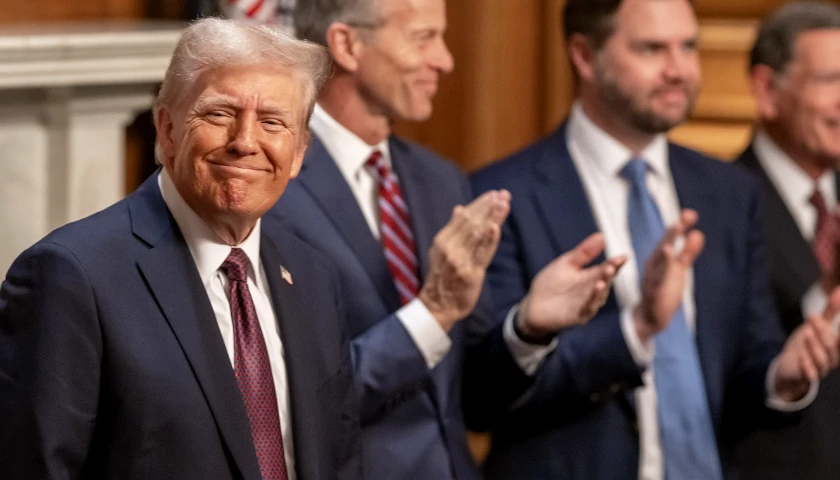by Scott McClallen
A six-bill package introduced on February 5 aims to regulate vaping like a tobacco product and tax it at 24 percent of the wholesale price.
The bill package follows a legal battle after Gov. Gretchen Whitmer’s administration banned flavored nicotine through an administrative order, citing concerns that certain flavors attracted minors.
A Michigan Court of Claims judge blocked the ban in October.
Senate Minority Leader Jim Ananich, D-Flint, sponsored SB 781, which seeks to categorize vaping products under Michigan’s “Tobacco Products Tax Act.”
“When a new tobacco product shows up on the market, it’s the legislature’s responsibility to make sure folks understand how to legally purchase, sell and consume these items,” Ananich told The Center Square.
“Our bipartisan bills will clear up any confusion, keep vapes out of kids’ hands and set fair regulations for these products that are similar to how we treat any other tobacco product.”
Rosie Jones, Ananich’s press secretary, told The Center Square the bill package intends to clarify hazy rules for vaping products.
Advocates say e-cigarettes are the best method to quit smoking cigarettes, and one study found e-cigarettes to be 95 percent safer relative to smoking cigarettes.
Guy Bentley, director of consumer freedom research at the Reason Foundation, told The Center Square that legislators should tax tobacco products according to the product risks of the users and non-users.
For example, cigarette taxes cause smokers to internalize the costs imposed onto non-smokers through increased healthcare costs, Bentley said.
“Taxing e-cigarettes would be more like a virtue tax because you’re putting a specific penalty on a consumer who wants to switch from the most dangerous product to one of the least dangerous products,” Bentley said, which would save the state money in healthcare costs.
Gregory Conley, president of the American Vaping Association, a pro-vaping advocacy organization, told The Center Square that higher prices would push vapers back to cigarettes.
“The big winners if SB 781 passes will be the tobacco industry, as we know that taxes on vaping products lead to more smoking and less quitting,” Conley said.
Conley cited a National Bureau of Economic Research study that analyzed the effects of Minnesota’s 95 percent wholesale tax on e-cigarettes and found that higher taxes deterred smokers from quitting combustible cigarettes.
The researchers used data from the Current Population Survey Tobacco Use Supplements from 1992 to 2015 and found that about 32,400 additional adult Minnesotan smokers would have quit smoking cigarettes without that tax.
“We find consistent and robust evidence that the e-cig tax in MN increased adult smoking relative to what it would have been in the absence of this tax,” the researchers wrote.
The researchers projected that if the same tax were enacted nationwide, then 1.8 million smokers would be deterred from quitting cigarettes over 10 years.
“The taxation of e-cigarettes at the same rate as cigarettes could deter more than 2.75 million smokers nationally from quitting in the same period,” the study said.
Conley summarized that study relative to Michigan’s population.
“Legislators should not forget that nearly 1.5 million adults in Michigan still smoke cigarettes and half of them are on the trajectory to smoke until it’s too late,” Conley said. “Tax policy should encourage smokers to make smarter choices, not penalize adults for improving their health.”
SB 782-786 would require a retail license not exceeding $25 to sell alternative nicotine products, restrict kid-friendly marketing, require age verification online and in stores, and update the penal code and tobacco consumption law to the federal rule of ages 21 and over.
The bill package was sent to the Senate Regulatory Reform Committee.
– – –
Scott McClallen is a staff writer covering Michigan and Minnesota for The Center Square. A graduate of Hillsdale College, his work has appeared on Forbes.com and FEE.org. Previously, he worked as a financial analyst at Pepsi.





